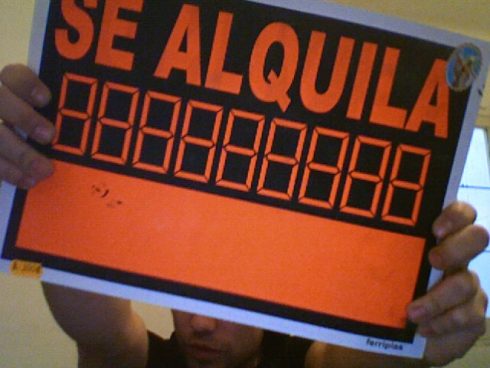ON May 11, the Junta de Andalucia’s new rules for tourist accommodation became law.
 This require owners who plan to rent out their properties to visitors this summer to have registered with the Andalucian Tourism Registry (RTA) or risk a fine for operating outside the law.
This require owners who plan to rent out their properties to visitors this summer to have registered with the Andalucian Tourism Registry (RTA) or risk a fine for operating outside the law.
In the three months since the decree was passed, only 3,000 properties have been registered with the RTA according to idealista.com
With up to 80,000 properties – containing as many as 800,000 beds according to the Tourism and Sports department’s estimations – regularly rented out, it seems many owners are hoping that they will slip under the radar.
But, from now on, if an owner does rent a property for tourist accommodation in Andalucia without having previously submitted a declaration of responsibility and having received a unique registration number from the RTA, fines from €2,000 to €18,000 can be levied.
In Ibiza, the local government is adopting a hardline approach to controlling illegal holiday rentals, in line with regulations introduced in 2012. To date, just 1,500 properties have been registered on the island, offering 5,000 beds to tourists, and there are another 5,000 pending approval, but this is just the tip of the iceberg.
This May, the council revealed it is using an IT application to comb popular websites for ‘pirate’ accommodation. Reportedly, 20,000 beds have been identified in 4,500 properties on one site alone. An advertising campaign has been launched to remind owners, estate agents, and tourist operators that fines for illegal rentals can be between €4-40,000.
In Barcelona, Spain’s most popular tourist destination by far, Ada Colau, the city’s first female mayor who came to power last June at the head of the Barcelona en Comú coalition, has recently extended a moratorium on new tourist accommodation that she introduced soon after taking office.
Colau’s predecessor, Xavier Trias, already ‘declared war’ on illegal tourism rentals back in 2014, after a wave of incidents involving (often drunk) tourists and irate local residents turned the tide against the rise of unregulated tourist apartments.
To date, just over 9,600 licences have been granted by the council, but an estimated 6,000 other properties are not complying with Catalunya’s new tourism legislation, introduced last summer. Barcelona’s council has already begun to issue fines which can reach as much as €600,000.
While the potential cost of fines in Andalucia pales in comparison with Catalunya, if the experience of owners in other areas of Spain that already have tourist rental regulations in place is anything to go by, my advice would be to ensure you and your property comply fully with the new law.
on one site alone. An advertising campaign has been launched to remind owners, estate agents, and tourist operators that fines for illegal rentals can be between €4-40,000.
In Barcelona, Spain’s most popular tourist destination by far, Ada Colau, the city’s first female mayor who came to power last June at the head of the Barcelona en Comú coalition, has recently extended a moratorium on new tourist accommodation that she introduced soon after taking office.
Colau’s predecessor, Xavier Trias, already ‘declared war’ on illegal tourism rentals back in 2014, after a wave of incidents involving (often drunk) tourists and irate local residents turned the tide against the rise of unregulated tourist apartments.
To date, just over 9,600 licences have been granted by the council, but an estimated 6,000 other properties are not complying with Catalunya’s new tourism legislation, introduced last summer. Barcelona’s council has already begun to issue fines which can reach as much as €600,000.
While the potential cost of fines in Andalucia pales in comparison with Catalunya, if the experience of owners in other areas of Spain that already have tourist rental regulations in place is anything to go by, my advice would be to ensure you and your property comply fully with the new law.










Comply, comply, comply, fine, threaten, fine. Spain 2016.
Las estaciones de FM tienen la particularidad de que sus indicativos de llamada
deben incluir las literato XH -igual que las de televisión-, regla
de la que escapan algunas emisoras, como XEW FM, XEQ FM XERPM
FM a las que como un reconocimiento a la tradición de sus antecesoras en la
orquestra de AM se les permite usar las mismas siglas. http://dreamsknights.peacefully.jp/yybbs/yybbs.cgi?list=thread